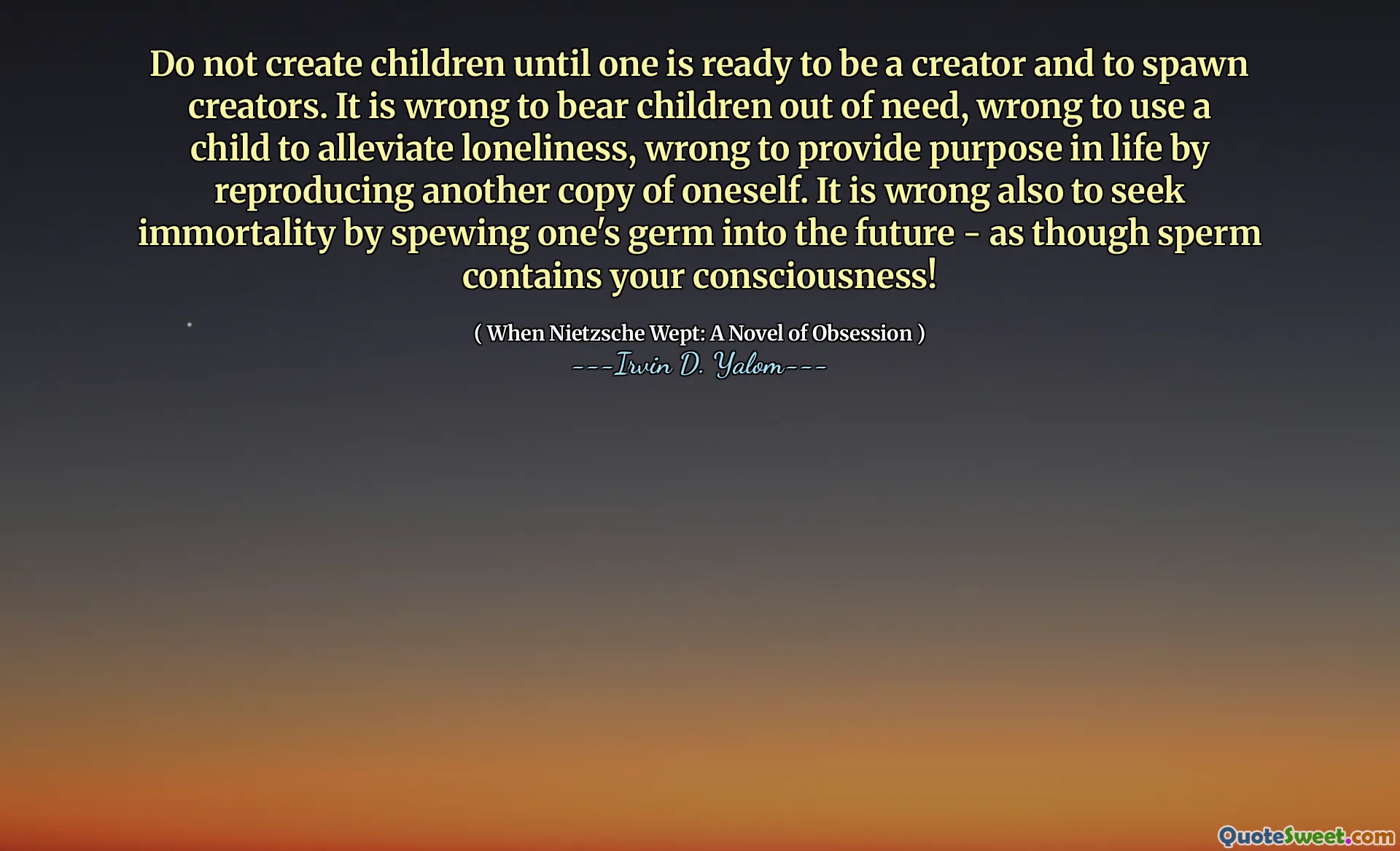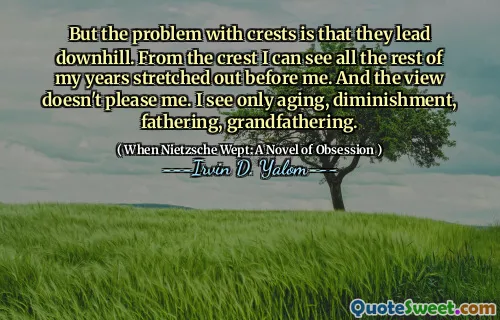
Do not create children until one is ready to be a creator and to spawn creators. It is wrong to bear children out of need, wrong to use a child to alleviate loneliness, wrong to provide purpose in life by reproducing another copy of oneself. It is wrong also to seek immortality by spewing one's germ into the future - as though sperm contains your consciousness!
This quote challenges the common assumptions surrounding procreation, urging a deeper, more thoughtful approach to the responsibility of bringing life into the world. The author emphasizes that having children should not be an impulsive action driven by personal voids—such as loneliness, the need for purpose, or the desire for immortality. Instead, it requires a conscious readiness to take on the role of a creator who not only gives life but also nurtures the capacity for creation in the next generation.
It raises an important ethical perspective about the motivations behind reproduction. Too often, people may unconsciously project their desires and insecurities onto their children, inadvertently making them vehicles for emotional fulfillment or a means to extend their existence symbolically. This reduces children to mere extensions or substitutes rather than recognizing their individuality and the responsibility to equip them to become independent creators themselves.
The metaphor of "spreading one's germ into the future" critiques the notion that biological reproduction guarantees one’s consciousness or essence to survive, unraveling a subtle fallacy in human ego and longing for lasting impact. It invites readers to reflect on genuine legacy, which may rather reside in the cultivation of ideas, values, and influences that transcend genetic lineage.
Overall, the quote resonates with a profound existential contemplation embedded in the narrative of "When Nietzsche Wept," signaling the importance of intentionality in our life choices and respect for the autonomy of future generations. It is a call to embrace the true weight and creative power inherent in human procreation.







